第34章
To the middle state belongs also tact; it is the mark of a tactful man to say and listen to such things as befit a good and well-bred man; for there are some things that it befits such a man to say and to hear by way of jest, and the well-bred man's jesting differs from that of a vulgar man, and the joking of an educated man from that of an uneducated. One may see this even from the old and the new comedies;to the authors of the former indecency of language was amusing, to those of the latter innuendo is more so; and these differ in no small degree in respect of propriety. Now should we define the man who jokes well by his saying what is not unbecoming to a well-bred man, or by his not giving pain, or even giving delight, to the hearer? Or is the latter definition, at any rate, itself indefinite, since different things are hateful or pleasant to different people? The kind of jokes he will listen to will be the same; for the kind he can put up with are also the kind he seems to make. There are, then, jokes he will not make; for the jest is a sort of abuse, and there are things that lawgivers forbid us to abuse; and they should, perhaps, have forbidden us even to make a jest of such. The refined and well-bred man, therefore, will be as we have described, being as it were a law to himself.
Such, then, is the man who observes the mean, whether he be called tactful or ready-witted. The buffoon, on the other hand, is the slave of his sense of humour, and spares neither himself nor others if he can raise a laugh, and says things none of which a man of refinement would say, and to some of which he would not even listen. The boor, again, is useless for such social intercourse; for he contributes nothing and finds fault with everything. But relaxation and amusement are thought to be a necessary element in life.
The means in life that have been described, then, are three in number, and are all concerned with an interchange of words and deeds of some kind. They differ, however, in that one is concerned with truth; and the other two with pleasantness. Of those concerned with pleasure, one is displayed in jests, the other in the general social intercourse of life.
9
Shame should not be described as a virtue; for it is more like a feeling than a state of character. It is defined, at any rate, as a kind of fear of dishonour, and produces an effect similar to that produced by fear of danger; for people who feel disgraced blush, and those who fear death turn pale. Both, therefore, seem to be in a sense bodily conditions, which is thought to be characteristic of feeling rather than of a state of character.
The feeling is not becoming to every age, but only to youth. For we think young people should be prone to the feeling of shame because they live by feeling and therefore commit many errors, but are restrained by shame; and we praise young people who are prone to this feeling, but an older person no one would praise for being prone to the sense of disgrace, since we think he should not do anything that need cause this sense. For the sense of disgrace is not even characteristic of a good man, since it is consequent on bad actions (for such actions should not be done; and if some actions are disgraceful in very truth and others only according to common opinion, this makes no difference; for neither class of actions should be done, so that no disgrace should be felt); and it is a mark of a bad man even to be such as to do any disgraceful action. To be so constituted as to feel disgraced if one does such an action, and for this reason to think oneself good, is absurd; for it is for voluntary actions that shame is felt, and the good man will never voluntarily do bad actions. But shame may be said to be conditionally a good thing; if a good man does such actions, he will feel disgraced; but the virtues are not subject to such a qualification. And if shamelessness-not to be ashamed of doing base actions-is bad, that does not make it good to be ashamed of doing such actions. Continence too is not virtue, but a mixed sort of state; this will be shown later. Now, however, let us discuss justice.